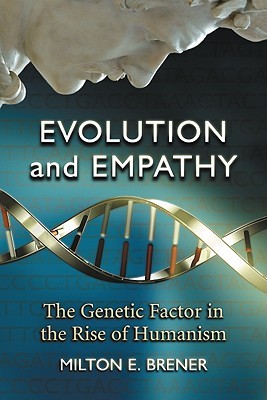
- We will send in 10–14 business days.
- Author: Milton E Brener
- Publisher: McFarland & Company
- ISBN-10: 0786436654
- ISBN-13: 9780786436651
- Format: 15.4 x 22.8 x 1.5 cm, minkšti viršeliai
- Language: English
- SAVE -10% with code: EXTRA
Reviews
Description
This book applies new scientific research in the fields of biology and genetics to an empirical study of the Greco-Roman civilizations and the European Renaissance. These two periods were remarkable in part because of the dominance of empathy and humanism in the philosophical thought of each era. Both periods were preceded by the influx of many populations and genetic lines, a circumstance this book treats as not coincidental but probably causative. The author cites the expression of new genetic combinations in these periods as evidence that genetic evolution can play a large part in the development of new philosophical concepts, as manifested in these two periods. The author explains that humanistic traits seem to rise and fall in lockstep throughout human history, directly or indirectly correlating with changing genetic underpinnings.
EXTRA 10 % discount with code: EXTRA
The promotion ends in 22d.00:34:10
The discount code is valid when purchasing from 10 €. Discounts do not stack.
- Author: Milton E Brener
- Publisher: McFarland & Company
- ISBN-10: 0786436654
- ISBN-13: 9780786436651
- Format: 15.4 x 22.8 x 1.5 cm, minkšti viršeliai
- Language: English English
This book applies new scientific research in the fields of biology and genetics to an empirical study of the Greco-Roman civilizations and the European Renaissance. These two periods were remarkable in part because of the dominance of empathy and humanism in the philosophical thought of each era. Both periods were preceded by the influx of many populations and genetic lines, a circumstance this book treats as not coincidental but probably causative. The author cites the expression of new genetic combinations in these periods as evidence that genetic evolution can play a large part in the development of new philosophical concepts, as manifested in these two periods. The author explains that humanistic traits seem to rise and fall in lockstep throughout human history, directly or indirectly correlating with changing genetic underpinnings.


Reviews